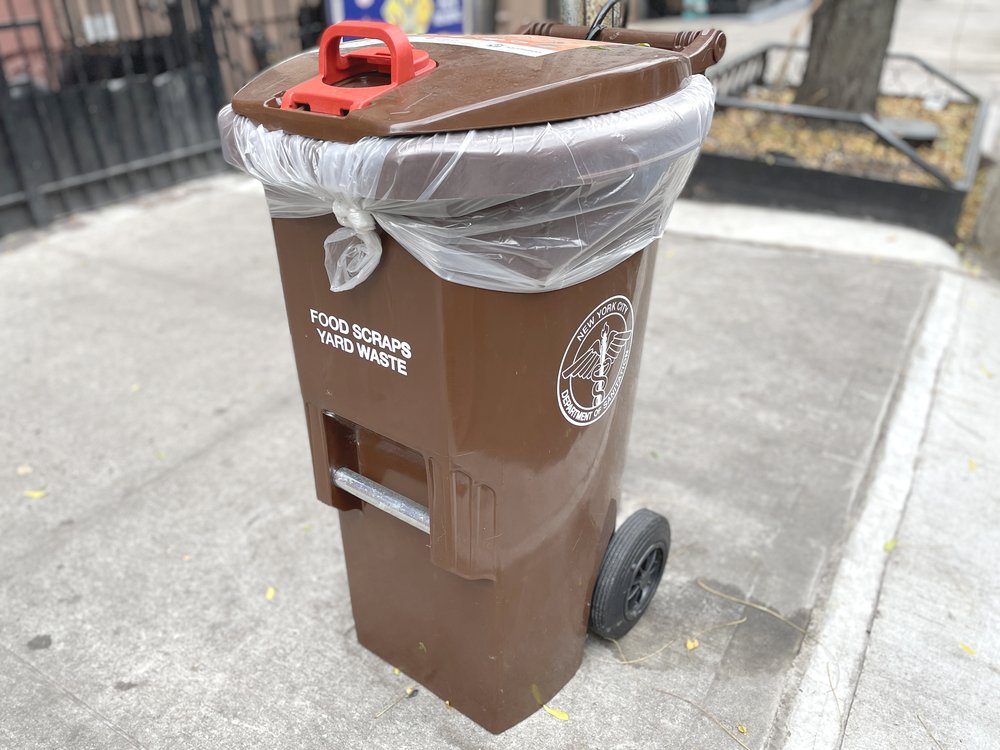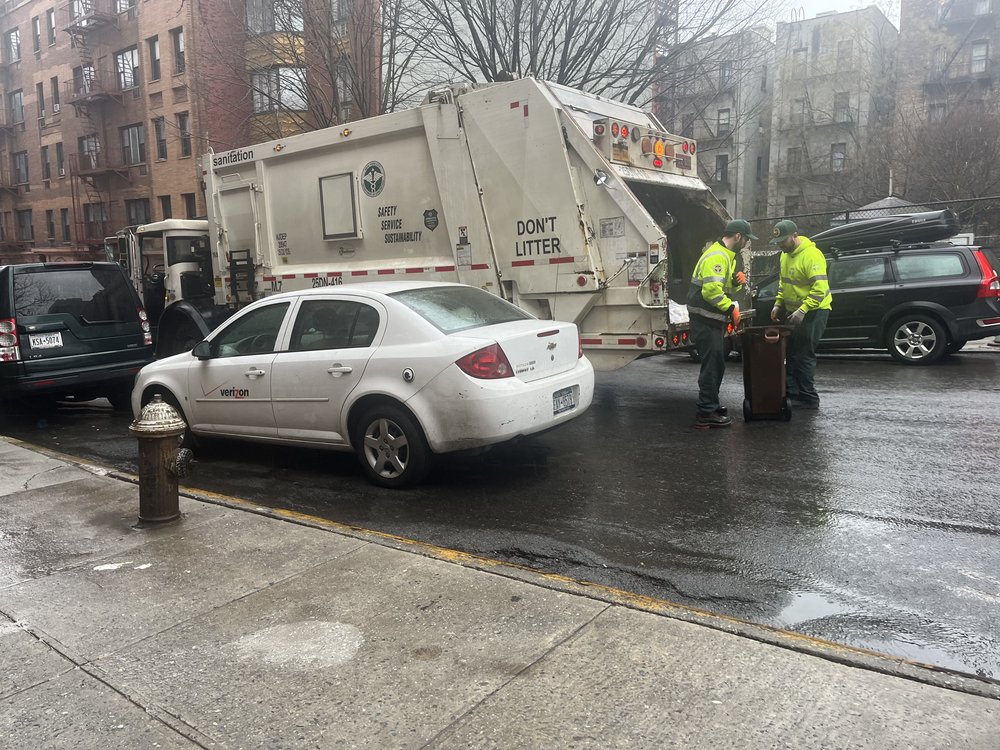Everyone in NYC has to compost. Here's how to follow the rules and avoid tickets.
March 28, 2025, 6:30 a.m.
Teaching 8 million New Yorkers how to compost is a herculean task. This guide aims to help.

New Yorkers are required to compost all their organic waste under a sanitation department rule that went into effect back in October. But despite the mandate, the participation rate is abysmal: Public data indicates less than 5% of the city’s organic waste is actually being composted.
To get more people to participate, the city plans to ramp up enforcement. Starting April 1, property owners who don’t follow the rules will be subject to fines.
The composting push is part of a broader overhaul of trash collection in New York City under Mayor Eric Adams. The mayor’s “trash revolution” aims to get rid of the piles of trash bags on city sidewalks by requiring all garbage to be put out for collection in securely lidded containers.
But in the meantime, the compost rules are in effect for everyone across the five boroughs. It’s a big shift in a city where food scraps have always been tossed in the garbage.
What can I compost?
All your food scraps that you usually throw in your kitchen trash should be separated for compost collection. That includes food as well as greasy paper plates and pizza boxes. All yard waste like dead plants or leaves should also be composted. The sanitation department clarified that hair and nail clippings also count as organic waste and can be composted.
What can’t I compost?
Pet waste, dead animals and used cooking oil still go in your regular garbage. Paper, softcover books, as well as glass and plastic still go in their usual recycling bins. You can’t compost medical waste, wrappers, hygiene products or most other things that didn’t grow from the earth. The sanitation department offers a handy guide here.
How does the city’s composting program actually work?
The process of keeping organic waste out of the landfill begins in your home. As you cook, food scraps can go in a separate bin along with uneaten meals and basically anything else biodegradable that you would otherwise throw out.
If you own a home, you’re responsible for bringing your own compost out to the curb in a bin with a secured lid. If you rent, it’s up to your landlord to supply a container for you to dump your organic waste. Sanitation workers pick up compost the same day as recycling.

What do I do with the compost before it goes to the curb?
You can store your organics in your freezer, in a bin or simply take your food scraps to a designated bin in your building. You can use plastic bags to temporarily store your organic waste, and the sanitation department said they can be thrown in with the compost so long as they’re not black plastic bags, like those given out at bodegas across the city.
What bins should I be using to put my compost on the curb?
The city gave out thousands of brown bins for free last year, but that offer is over. Now, property owners can buy one from the sanitation department for $45. But really, any bin will do, so long as it’s less than 55 gallons, has a secure lid, and is labeled to let sanitation workers know it contains compost.
If your bin gets stolen, you should file a police report. Sanitation officials said they aren’t worried about compost bins becoming targets for theft.
“Cities with much higher crime rates than New York City have been using bins for decades,” Gragnani said.
The sanitation department suggests writing your address on your bin in case it goes missing.
Do I really have to use the curbside composting program?
Not necessarily. You can also use one of the city’s “Smart Composting Bins,” which can be opened with a QR code. New Yorkers can also visit a community composting site to dump their organic waste.
How much will I pay if I don’t compost?
The fines start at $25 for buildings with eight or fewer units, and $100 for buildings with nine or more. The fines for big buildings top out at $300, so a large building that continually fails to comply could be on the hook for more than $15,000 a year.
Sanitation inspectors are also not supposed to ticket buildings for the simple absence of a bin filled with compost on the day it’s supposed to be set out. They’ll only issue tickets if a property owner is mixing their organic waste with the rest of their household trash.
How will the sanitation department know if I’m not composting?
The sanitation department has a team of inspectors who can go through your garbage to see if you’re complying with the rules. They issue fines to building owners who fail to comply with any of the department’s rules.
Why should I even bother to compost?
Rotting organic waste dumped in landfills is generally bad for the environment. As it breaks down, it releases methane into the atmosphere, which contributes to climate change.
Sanitation officials said the city’s program produces “finished” compost that can be repurposed in city green spaces. They also said separating food scraps from regular garbage helps fight the city’s rat infestation by reducing the rodents’ food source.
What happens to the compost that gets collected? Doesn’t it all get mixed in with garbage?
The sanitation department has trucks equipped with separate compartments for compost and regular household trash. The department reports it produces about 50 million pounds of finished compost a year at a Staten Island facility and organizes dozens of events every year where it gives away compost.
Some of the organic waste gets sent to the city’s Newtown Creek Wastewater Treatment Plant, where it produces methane that’s burned off to produce energy. The practice has attracted criticism from environmental advocates who say it goes against the spirit of composting because it produces methane and waste that ends up in landfills.
Sanitation officials said that any option is better than dumping the waste in massive landfills.
What if my building doesn’t offer composting?
Owners of buildings with four or more units must provide a storage area for compost collection.
Starting April 1, the city’s 311 service will add a new category for New Yorkers to report landlords who ignore the composting rule. Andrew Hargest, the president and CEO of composting supply company Compost Club, encouraged tenants to work together to pressure their landlords if their building doesn't have a compost collection area.
“I would put a signup sheet or something in your building to get more tenants on board,” he said. “ I think it's a little bit more effective, because what is composting other than a community effort, right?”
City to begin issuing fines to New Yorkers who don’t compost